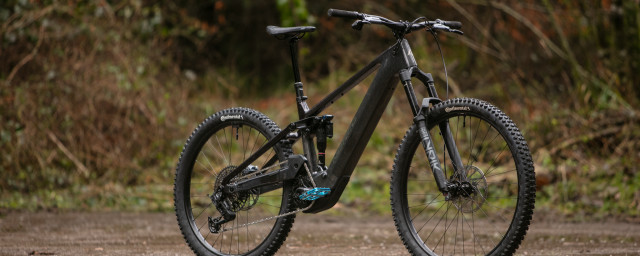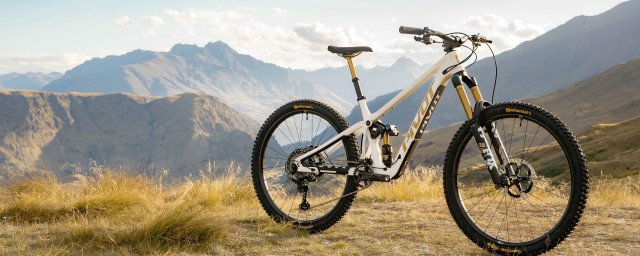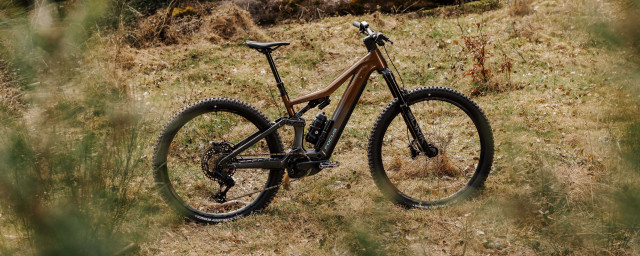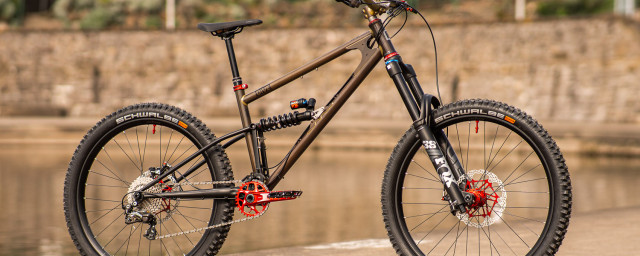Reynolds finds steel is 'greener' than titanium in study

As a response to the ever-increasing importance of implementing more environmental sustainability in the cycling industry, Reynolds Technology, the British company known for its steel and titanium bicycle tubing, has published the findings of its first Environmental Impact Study.
- 10 of the best titanium gravel and adventure bikes you can buy
- The ultimate guide to frame materials: what's best for bikes?
- The best gravel bikes and adventure bikes you can buy for around £1,000
Reynold’s has conducted the study looking at its full manufacturing processes in order to better understand its own carbon footprint, but also to help frame builders and customers assess the environmental impacts of their bikes.
The study, available on Reynold's website aims to quantify the belief that steel is an excellent and sustainable choice for bicycle manufacturers.
Reynolds’ General Manager Martin Shepherd said: “It would be easy to just say that bikes are good and a solution to the climate crisis, but this study enables us to look inside the business to make improvements and to keep reducing our impact. By bringing our carbon footprint into the decisions we make, both daily and long-term, we can do our bit to make cycling even kinder to the world we live in.”
Reynolds says the benefits of steel and titanium are well documented. These materials are durable, long-lasting, easily repairable and straightforward to recycle. This sentiment is reflected by another British steel frame manufacturer, Starling Cycles, who published a similar environmental report just last month.
But Reynold’s environmental impact study shows that not all steel frames are created equal. Ferrous steel frames produce the lowest carbon emissions during manufacture, followed by titanium and then stainless steel. A conventional ‘double diamond’ ferrous steel frame produces 17.2kg CO2, titanium 53.92kg and stainless steel 59.44kg.
Reynolds has also looked at transport’s environmental impact. Airfreighting goods to and from Reynolds is the manufacturer’s biggest environmental impact, which has been worsened by logistical challenges caused by the COVID-19 pandemic. To improve this, Reynolds says they will be working with suppliers and customers to improve planning and avoid airfreight.
Global travel represents the majority of Reynolds’ non-production CO2 generation - majority of the emissions coming from overseas trade shows and meetings. The company recognises that there’s a significant opportunity to improve by minimising trips, making better use of remote-meeting technology, and enhancing the role of local distributors.
Other aspects Reynolds will look at improving are its factories' energy usage and waste management. The company already aims to send nothing recyclable to the landfill and all of Reynolds’ steel comes from 100% recycled materials.
In completing the study, Reynolds acknowledges that it is the first step in an ongoing process, and the report will be updated and refined as time goes on.
The report will continue to be updated and refined as time goes on and, as Shepherd states “we want to continue the work, both measuring the improvements we make to Reynolds, but also to get better data to reduce the margin of error on the published numbers. It is the start of the journey for Reynolds, not the end”.
Shepherd adds “We’re already using the study to influence planning and decision making, starting with a commitment to better insulate our factory and reduce our use of air freight. It’s an active agenda for change, not just a report to stick on the website and feel virtuous about”.











5 comments
Unfortunately there are difficulties in recycling titanium, complications with contamination and not a large recycling industry.
We tried to get rid of some of our out of date ultracentrifuge rotors, scrap man wouldn't take them, had to analyse them to make any money and they were too small for him to make any money. Returning them to the supplier would work, but oddly fairly heavy so postage expensive,
I shall keep my ti framed late 90s xc bike forever, and she is still a lot of fun, but replacing componentry is becoming more difficult.
Steel and ali can easily be taken to the local tip.
Reynolds dont make Alu tubing.... afaik,
My guess is a bit more than SS. Fundamentally more energy intensive to produce but offset by much more massive economies of scale. The upside is since 60% of the carbon cost is from the electricity its relatively easy to turn a bigger chunk of it green via renewables. Downside is that there is so much Alu smelting going on that it will take years to make an appreciable difference.
How does Aluminium compare?
They pull out stainless steel separately, but what about other grades of "ferrous steel"? I understand some grades go through various different heat treatments, presumably so of which are more energy intensive than others?
So if we account for the fact that steel rust and is replaced, titanium is the most environmentally friendly metal?